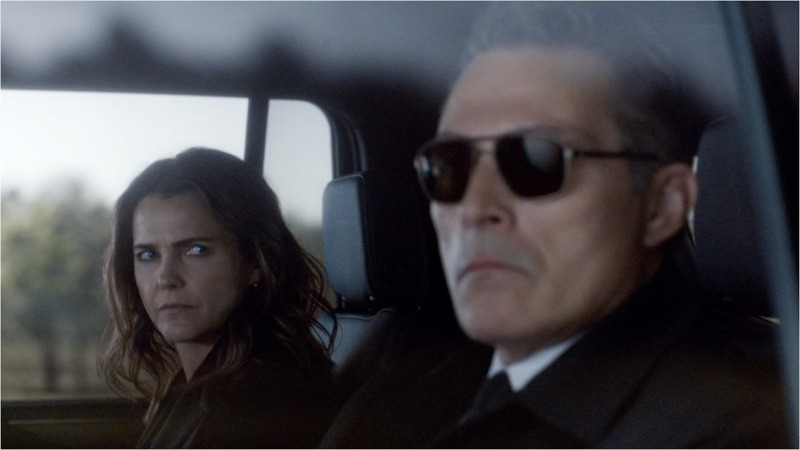Relationships Both Foreign and Domestic Complicate The Diplomat’s Emotionally Frustrating Third Season
(Photo: Netflix)
Netflix’s The Diplomat isn’t the sort of political drama that cares too much about the inner workings of state bureaucracy or that gets overly idealistic about the people who populate the global halls of power. Instead, it treats politics as something deeply personal, an extension of the lives of those who serve, and a reflection of the choices (for both good and often very ill) they must make along the way. The show is full of intelligent banter and surprising twists — very few of which would likely ever actually happen in the real world — but what makes it stand out has always been the characters at its center and the messy relationships they share. Which is why it’s so frustrating that, in its third season, The Diplomat so frequently foregrounds plot concerns over emotional depth.
Season 3 picks up moments after the shocking events of the previous finale, which saw Ambassador Kate Wyler (Keri Russell) inform Vice President Grace Penn (Allison Janney) that she was aiming to replace her due to her involvement in a false flag attack on U.K. soil, a chat that took place just as President Rayburn (Michael McKean) dropped dead. Suddenly, Kate and her former diplomat husband Hal (Rufus Sewell) are two of the only people who know the treasonous truth about a woman who just so happens to have ascended to the most powerful position on Earth. Drama immediately ensues on a global scale, as the Wylers manuever to salvage their individual and collective relationships with Grace, protect themselves professionally, and figure out what the fallout from Rayburn’s death means for both their public lives and their marriage.
If that seems like a very vague description of events, well. It is. There are many aspects of the new episodes that critics are forbidden from discussing, including a twist that reshapes both the season and the series in such a way that’s almost impossible to talk around. (So I’m not even going to try.) But suffice it to say that, yes, The Diplomat remains as bonkers as ever in its third season when it comes to foreign affairs and steadily escalating geopolitical intrigue. Impossible weaponry is referenced. Multiple world leaders are petty AF! Ill-advised grudges are held! Incredibly dumb choices are made that may or may not threaten world peace! People are rude at dinner parties! But when it comes to character work, the season’s eight episodes (all of which were available for review) are a bit more uneven—and much more exasperating.
Part of the problem is that several huge choices—that happen to be key narrative and emotional drivers of much of the season!—unfold in ways that feel almost completely out of the blue. There’s little justification behind them beyond the fact that, for the season’s arc to unfold a certain way, people have to make specific decisions, regardless of whether they make sense for their personal arcs, relationships, or the basic facts where we left things at the end of Season 2. (A big shift in the Wylers’ marriage is particularly head-scratching given where we left them at the end of last season!) And much of the season’s twisty fun comes at the cost of the emotional depth of many of the series’ characters, who either aren’t given enough screentime for their choices to be fully explored, or whose reasoning for the choices they make is simply never mentioned.
This is doubly disappointing because The Diplomat has always been forthright that even the best relationships are complicated ones, and delighted in showing the ways that love and power are frequently tightly intertwined in the world of politics. On paper, the series pretends that it’s about Kate, a talented political mind and dedicated public servant, making the best of a posting to London she never asked for and didn’t want. And that is true, to a certain degree, but the real emotional and narrative engine behind The Diplomat is her marriage.
After all, we’ve seen a billion shows about geopolitical intrigue of one stripe or another on television in recent years, tackling everything from terrorists to spy rings and trade wars. The Wylers’ rocky but weirdly relatable relationship is what gives this series its heart, a constantly furious, sexy, cruel, and downright entertaining negotiation between whipsmart people with their own personal and professional goals and agendas. Their love is both dangerously toxic and strangely romantic, and The Diplomat certainly doesn’t shy away from showing us how awful they can be to one another. Yet, the series doesn’t work without them. Every scene Russell and Sewell share crackles with energy, and the show’s an order of magnitude stronger when they’re together onscreen.
-

-

-

-

-

-

-

-

-

-

-

-

-

-

-

-

-

-

-

-

-

-

-

-

-

-

-

-

-

-

-

-

-

-

-

-

-

-

-

-








































